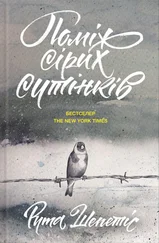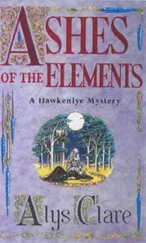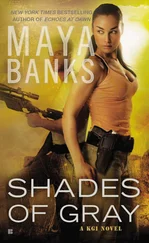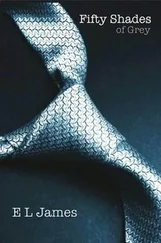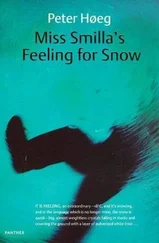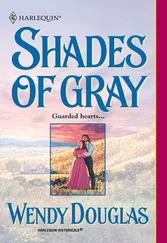“Mother, you don’t understand,” I said.
She ignored me and continued. “Well, I can see you’re upset. Jonas said that you were nasty to Andrius. That’s unfair. Sometimes kindness can be delivered in a clumsy way. But it’s far more sincere in its clumsiness than those distinguished men you read about in books. Your father was very clumsy.”
A tear rolled down my cheek.
She chuckled in the darkness. “He says I bewitched him the very instant he saw me. But do you know what really happened? He tried to talk to me and fell out of a tree. He fell out of an oak tree and broke his arm.”
“Mother, it’s not like that,” I said.
“Kostas,” she sighed. “He was so clumsy, but he was so sincere. Sometimes there is such beauty in awkwardness. There’s love and emotion trying to express itself, but at the time, it just ends up being awkward. Does that make sense?”
“Mmm, hmm,” I said, trying to muffle my tears.
“Good men are often more practical than pretty,” said Mother. “Andrius just happens to be both.”
~
I couldn’t sleep. Each time I closed my eyes I saw him winking at me, his beautiful face coming toward mine. The smell of his hair lingered around me.
“Are you awake?” I whispered.
Joana rolled over. “Yes, it’s too hot to sleep,” she said.
“I feel like I’m spinning. He’s so… handsome,” I told her.
She giggled, tucking her arms under her pillow. “And he dances even better than his older brother.”
“How did we look together?” I asked.
“Like you were having a great time,” she said. “Everyone could see that.”
“I can’t wait to see him tomorrow,” I sighed. “He’s just perfect.”
The next day after lunch we ran back to the cottage to brush our hair. I nearly ran over Jonas on my way out.
“Where are you going?” he asked.
“For a walk,” I said, rushing after Joana.
I walked as fast as I could without breaking into a jog. I tried not to crumple the drawing rolled in my hand. I had decided to draw him when I couldn’t sleep. The portrait came out so well that Joana suggested I give it to him. She assured me he’d be impressed with my talent.
His brother rushed up to Joana, meeting her in the street.
“Hey, stranger,” he said, smiling at Joana.
“Hi!” said Joana.
“Hi, Lina. What do you have there?” he said, motioning to the paper in my hand.
Joana looked over toward the ice cream shop. I moved around her to find him.
“Lina,” she said, reaching out to hold me back.
It was too late. I had already seen. My prince had his arm around a girl with red hair. They were cozy, laughing, sharing an ice cream cone. My stomach plunged and twisted.
“I forgot something,” I said, backing away. My fingers wrenched the portrait in my sweaty hand. “I’ll be right back.”
“I’ll come with you,” said Joana.
“No, that’s all right,” I said, hoping the blotches of heat I felt on my neck weren’t visible. I attempted a smile. The sides of my mouth trembled. I turned and walked away, trying to keep my composure until I reached a safe distance.
Clenching my jaw didn’t stop the tears. I stopped and leaned against a trash can on the street.
“Lina!” Joana caught up to me. “Are you all right?”
I nodded. I opened the crinkled portrait of his handsome face. I ripped it up and threw it away. Stray pieces escaped my grip and blew across the street. Boys were idiots. They were all idiots.
AUTUMN APPROACHED. The NKVD pushed us harder. If we so much as stumbled, they reduced our bread rations. Mother could close her thumb and middle finger around my forearm. I had no tears. The sensation of crying would fill me, but my eyes would only dry-heave and burn.
It was hard to imagine that war raged somewhere in Europe. We had a war of our own, waiting for the NKVD to choose the next victim, to throw us in the next hole. They enjoyed hitting and kicking us in the fields. One morning, they caught an old man eating a beet. A guard ripped out his front teeth with pliers. They made us watch. Every other night they woke us to sign the documents sentencing us to twenty-five years. We learned to sit in front of Komorov’s desk and rest with our eyes open. I managed to escape the NKVD while sitting right in front of them.
My art teacher had said that if you breathed deeply and imagined something, you could be there. You could see it, feel it. During our standoffs with the NKVD, I learned to do that. I clung to my rusted dreams during the times of silence. It was at gunpoint that I fell into every hope and allowed myself to wish from the deepest part of my heart. Komorov thought he was torturing us. But we were escaping into a stillness within ourselves. We found strength there.
Not everyone could sit still. People became restless, exhausted. Finally, some gave in.
“Traitors!” spit Miss Grybas under her breath, clucking her tongue. People argued about those who signed. The first night someone signed, I was furious. Mother told me to feel sorry for the person, that they had been pushed over the edge of their identity. I couldn’t feel sorry for them. I couldn’t understand.
Walking to the fields each morning, I could predict who would be the next to sign. Their faces sang songs of defeat. Mother saw it, too. She would chat with the person and work next to them in the field, trying to bolster their spirit. Sometimes it worked. Many times it didn’t. At night I drew portraits of those who had signed and wrote about how the NKVD broke them down.
The NKVD’s hostilities strengthened my defiance. Why would I give in to people who spit in my face and tormented me each and every day? What would I have left if I gave them my self-respect? I wondered what would happen if we were the only ones left who wouldn’t sign.
The bald man moaned that we could believe no one. He accused everyone of being a spy. Trust crumbled. People began to question each other’s motives and planted seeds of doubt. I thought of Papa, telling me to be careful with my drawing.
Two nights later, the grouchy woman signed the papers. She bent over the desk. The pen trembled in her knobby hand. I thought she might change her mind, but suddenly she scribbled something and threw the pen down, committing herself and her little girls to twenty-five years. We stared at her. Mother bit her bottom lip and looked down. The grouchy woman began screaming, telling us we were imbeciles, that we were all going to die, so why didn’t we eat well until then? One of her daughters began to cry. That night, I drew her face. Her mouth sagged, forlorn. The lines of her brow plunged with both anger and confusion.
Mother and Mrs. Rimas scavenged for news of the men or the war. Andrius passed information to Jonas. He ignored me. Mother wrote letters to Papa, even though she had no idea where to send them.
“If only we could get to that village, Elena,” said Mrs. Rimas one night in the ration line. “We could mail our letters.”
People who signed the twenty-five-year sentence were able to go to the village. We were not.
“Yes, we need to get to the village,” I said, thinking of getting something to Papa.
“Send the whore, that Arvydas woman,” said the bald man. “She’ll hustle the best deals. Her Russian is probably pretty good by now.”
“How dare you!” said Mrs. Rimas.
“You disgusting old man. Do you think she wants to sleep with them?” I yelled. “Her son’s life depends on it!” Jonas hung his head.
Читать дальше
![Рута Шепетис Ashes in the Snow [aka Between Shades of Gray] обложка книги](/books/414915/ruta-shepetis-ashes-in-the-snow-aka-between-shades-cover.webp)
